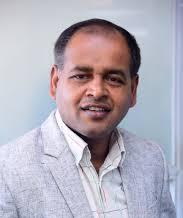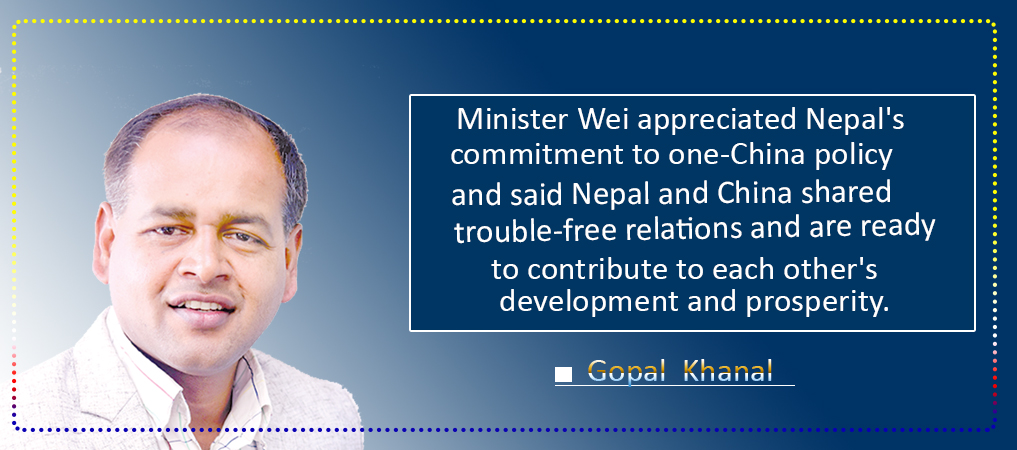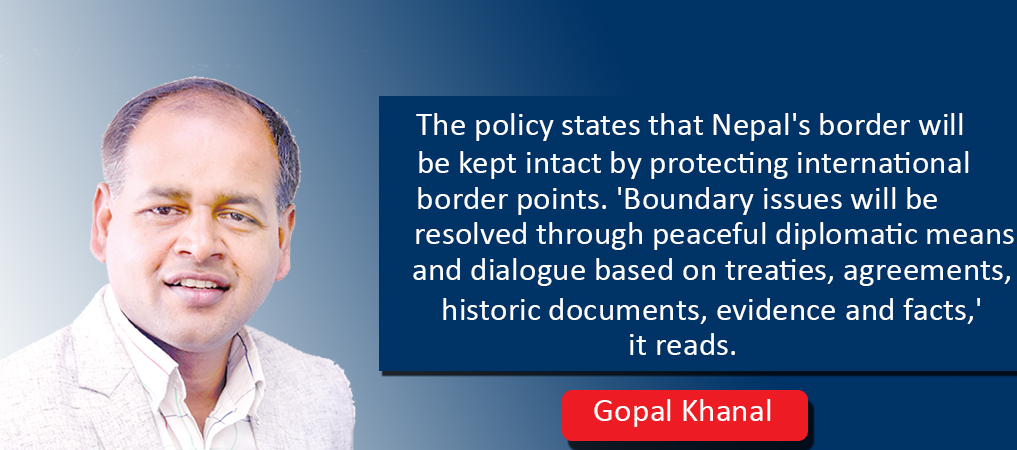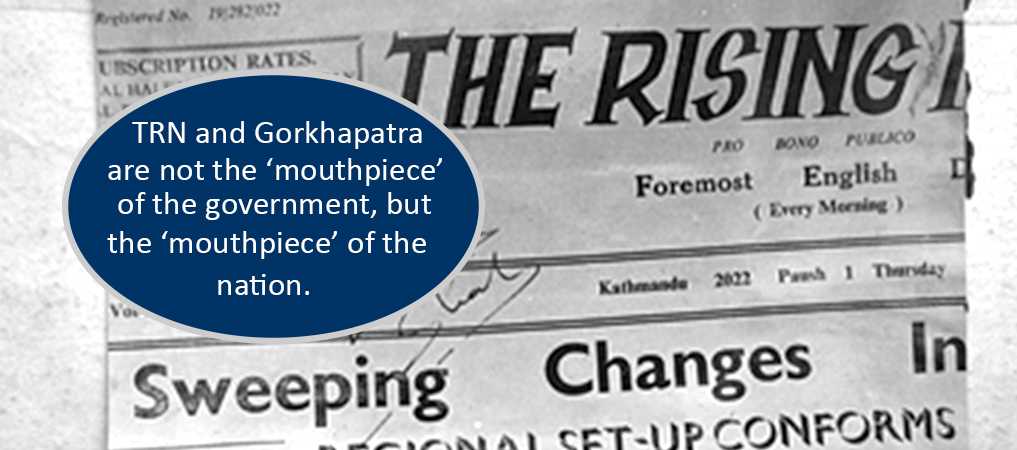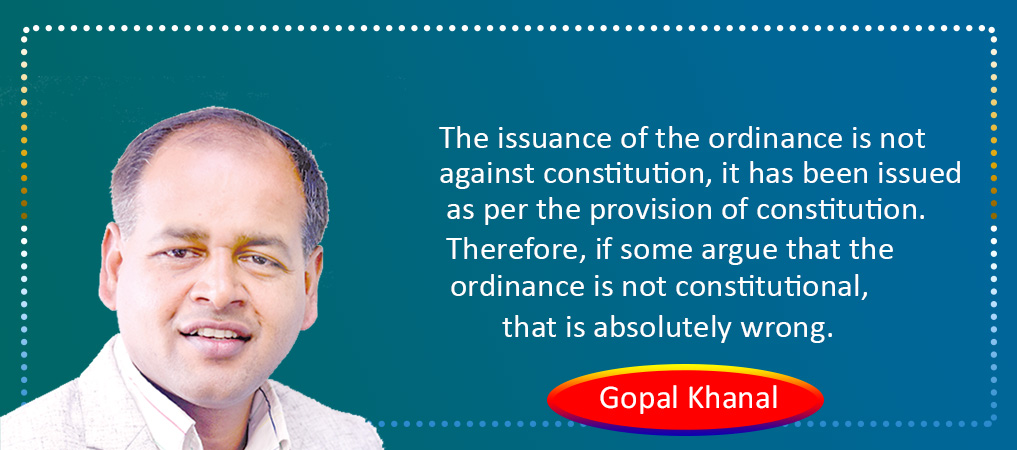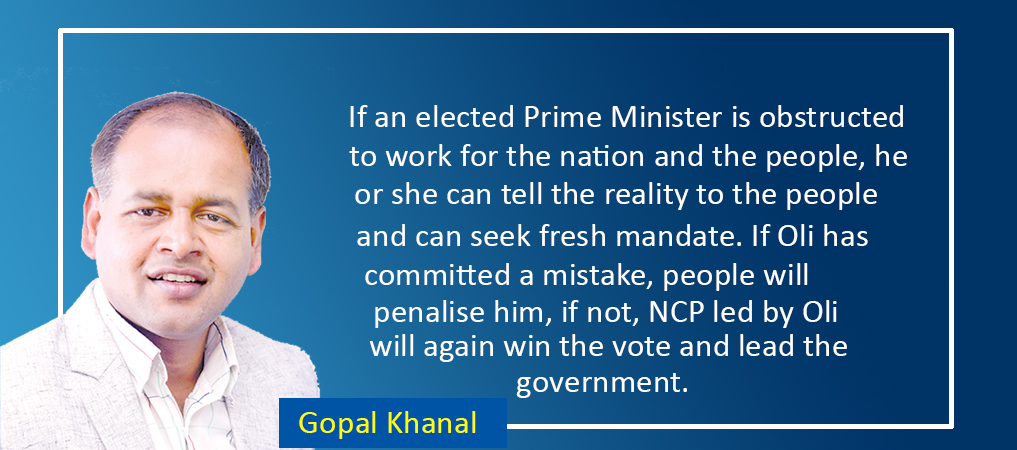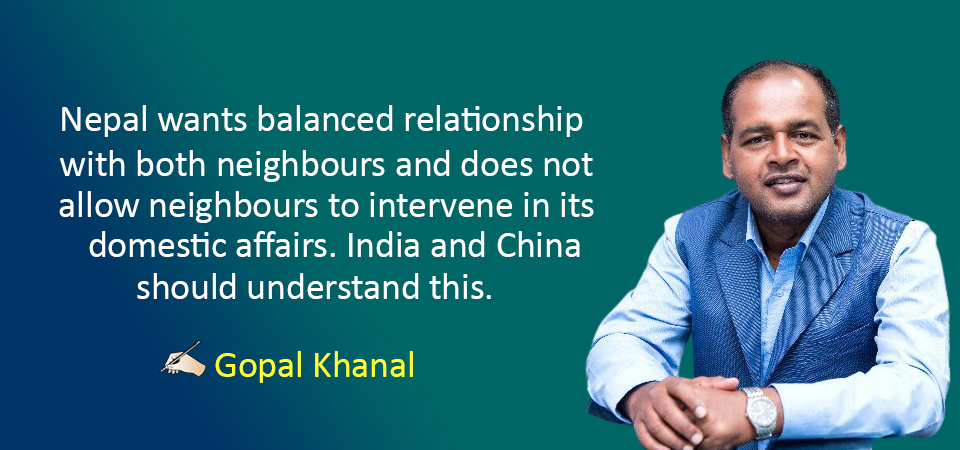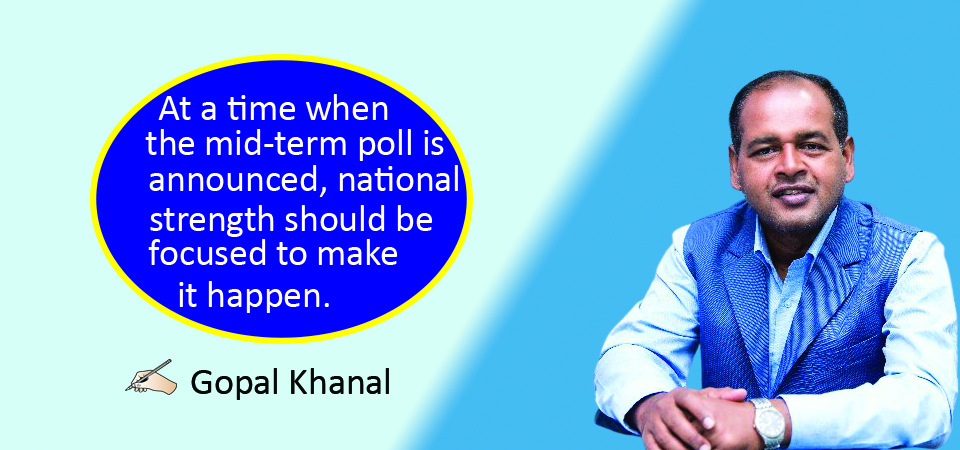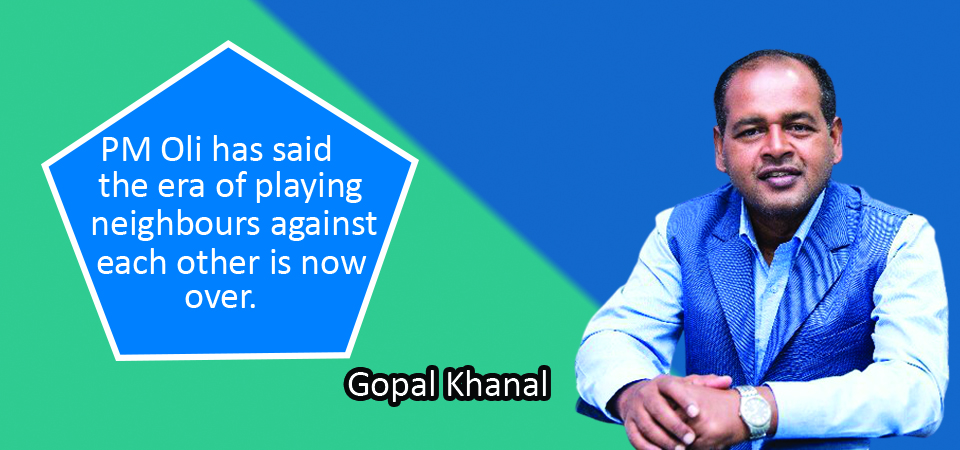Broader Acceptance Of Constitution
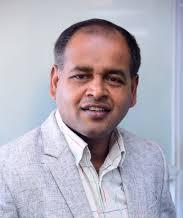
Gopal Khanal
Nepali people celebrated their national day (Constitutional Day) on Asoj 3 (19 September) in the midst of the COVID-19 global pandemic. For thirty million Nepali, from hills to the plains, national day is the proudest moment, reminding their duties and responsibilities as a citizen and further bolstering the ownership of the national charter that they have achieved after sacrifices and martyrdoms of a huge magnitude.
On September 20, 2015, after six decades of relentless struggle, Nepali people finally fulfilled their dream of promulgating their constitution through the elected Constituent Assembly and felt that they became master of their own destiny. The new and progressive constitution is the outcome of collective strength of Nepali people, irrespective of their ideologies, religions, geographies, castes and creeds, who had been dreaming a developed and prosperous Nepal. The demand of amendment to the constitution by a meagre section of society is politically motivated and it doesn't concern with the rights of the people stipulated in the main law of land.
Emotional attachment
President Bidya Devi Bhandari and Prime Minister KP Sharma Oli received the best wishes and messages of felicitations from the leaders of neighbours and the world, including Chinese President Xi Jinping and US President Donald Trump. Expressing the generous words for national days and independent days of any nations with the diplomatic ties is simply a continuation of diplomatic practice to demonstrate emotional attachment to the distinct glorious histories ascertained, protected and preserved through generations.
At the time of such national jubilation, coincidentally, Prime Minister KP Sharma Oli, addressed the two high-level virtual meetings to commemorate the 75th anniversary of the United Nations. They bore different contexts. But similar message could be drawn from these two dissimilar exchanges of notes. And at the epicentre of these developments lie Nepal's emerging international image. Prime Minister Oli is playing a central role in building Nepal's global identity as a sovereign, independent and peaceful nation, which can offer many things to the world including its home-grown peace process.
Prime Minister Oli's participation in the international forums including UN has always been effective to materialise the voices of the LLDCs and LDCs. Prime Minister Oli's addresses to the 73rd session of the UNGA and other high-level events were applauded by many heads of state and governments and the General Secretary of the UN himself.
President Xi, in his congratulatory messages to President Bhandari, said that the practical cooperation between the two nations would be enhanced in future. Pledging continuous support in the development of Nepal, he emphasised economic development-centric cooperation. It should be noted here that Nepal and China have been enjoying their friendly relations without any contested issues between them.
Nepali people were expecting to listen to friendly and warm words from Indian Prime Minister Narendra Modi on the constitution day but to no avail. Modi should have come out from that wrong status quo ante and welcomed the constitution, creating an environment of open discussion on the mutual support and benefit. India's Foreign Ministry, through its public diplomacy section, wished happy constitution day in a single liner tweet that Nepal least deserved. Nepal's constitution is one of the most progressive charters in the world since it has guaranteed all the rights to the people which only a functional democracy can ensure.
Multiculturalism
In the Preamble, Nepal's constitution has guaranteed the multiculturalism, which has been enshrined by few developed countries in their constitutions. Prime Minister Oli, on 21 September, while addressing the UN session with the theme, ‘The future we want, the United Nations we need: reaffirming out collective commitment to multilateralism' highlighted the Nepal's historic transformations and its commitment to multiculturalism. In his five-point recommendations to make UN more effective and a common forum for all, he reiterated the timely reforms. “With timely reforms, we must enable the UN to build a just, fair, and rule-based international order where no nation is superior to others,” he said.
Nepal can offer the world the best policies and principles regarding the rights of the people despite the fact that the journey towards development began lately. But the pace would be accelerated since the foundations of laws and infrastructures have already been laid.
Prime Minister Oli, On 18 September, addressed the SDG moment highlighting the Nepal's significant achievements in key areas - including poverty reduction, food security, education, gender equality, basic sanitation and energy access. “Development is at the centre of Nepal’s development vision and priorities. It underpins our national aspiration of “Prosperous Nepal, Happy Nepali”, he said.
In both the addresses, PM Oli naturally talked about Nepal’s efforts at containing the COVID-19 pandemic, its impact on economy and society. It is true that the challenges have compounded, and gaps widened. But, PM Oli says, 'This is not a moment to shift the goalposts further. Nor is it a time to back off in despair.' A self-confident Oli urged the leaders of the world to believe in work and move forward by setting the clear agenda.
From home to abroad, from the LLDCs to the developed nations, PM Oli has brought to light the potentiality of the Himalayan nation in the world.
(Khanal is consulting editor at Gorkhapatra Corporation. khanalbro@gmail.com)
Recent News

Do not make expressions casting dout on election: EC
14 Apr, 2022
CM Bhatta says may New Year 2079 BS inspire positive thinking
14 Apr, 2022
Three new cases, 44 recoveries in 24 hours
14 Apr, 2022
689 climbers of 84 teams so far acquire permits for climbing various peaks this spring season
14 Apr, 2022
How the rising cost of living crisis is impacting Nepal
14 Apr, 2022
US military confirms an interstellar meteor collided with Earth
14 Apr, 2022
Valneva Covid vaccine approved for use in UK
14 Apr, 2022
Chair Prachanda highlights need of unity among Maoist, Communist forces
14 Apr, 2022
Ranbir Kapoor and Alia Bhatt: Bollywood toasts star couple on wedding
14 Apr, 2022
President Bhandari confers decorations (Photo Feature)
14 Apr, 2022
